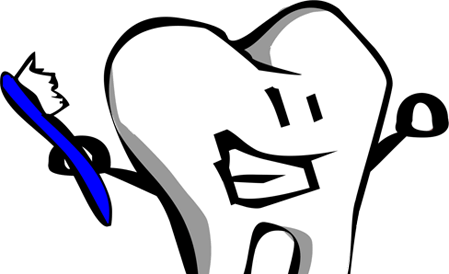Dental care from a children’s dentist offers a variety of solutions against any possible tooth and gum damage. A 2006 paper in Pediatric showed that children who took longer than their first birthday to see a children’s dentist were more prone to having recurring problems and emergency dental visits.
About Children’s Teeth
Children’s teeth begin to grow under their gums immediately after birth. There are two types of teeth: milk teeth (more commonly called baby teeth) and permanent teeth. Milk teeth usually erupt through the gums at the early age of six months. They are replaced by permanent teeth around the age of six. The American Academy of Pediatric Dentistry (AAPD), founded in 1947, has compiled a three-part approach to caring for children’s teeth: prevention, education, and research.
Prevention: What can damage children’s teeth?
Tooth decay
Tooth decay occurs if children often consume sugary foods or drinks, or do not clean their teeth properly. Our mouths are full of bacteria that build up on the teeth to digest some of the sugar in our food and drinks. These bacteria form acids which weaken the enamel (hard outer layer of the teeth) causing tooth decay.
Dental erosion
Dental erosion is the gradual corrosion of enamel on the surface of the tooth. The most common cause is acid from drinks such as processed fruit juice and soda. These acids attack the surfaces of the teeth leading to dental erosion. Harmful acids can also be produced if your child vomits or has stomach problems.
Education and Research: Teeth protection practices for children
Parents should realize that food does not cause tooth decay, eating does. A visit to the children’s dentist will prove that dental health does not only depend on what children eat, but more on how often they eat it. Attacks by bacterial acid, lasting for more than 20 minutes, often lead to tooth decay and eventual dental erosion.
While it is true that baby teeth do eventually come out, it is also true that they are crucial to the child in the meantime. Because of this, it is crucial for children to brush their teeth properly at least twice a day, preferably following breakfast and dinner, to reduce bacterial growth following meals. Until your child has developed good dental habits, it is important for their parent or caretaker to supervise brushing and flossing. Building a good dental routine while children are young ensures good dental health as they grow.
Visit Playtime Dental for more information regarding your child’s dental health, or to schedule a cleaning.


